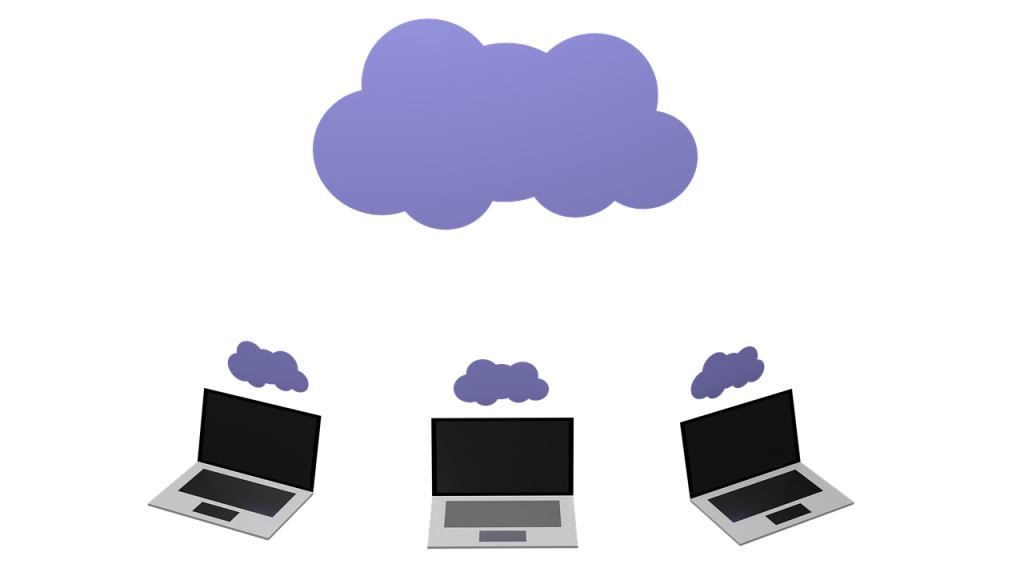More businesses are considering the advantages in moving their contact center infrastructure to a cloud platform. Companies around the world have made the transition to cloud computing as a means to increase productivity and develop revenue.

Image credit to TymonOziemblewski on Pixabay
Call and contact centers are now using the same technology to improve customer satisfaction. The cloud streamlines the integration of modern contact center technology with existing company infrastructure.
Cloud-based Services
Cloud computing is a reference to sharing resources such as data storage and software applications across the Internet. These resources are stored and maintained on physical servers owned by a provider company.
The cloud is an efficient solution that allows subscribers to access the latest technology in servicing their customers. Modern call center solutions allow companies to provide personalized service and meet customer expectations. At the same time, cloud-based solutions provide reliability, versatility, and cost savings over having to maintain in-house contact center technology.
Cloud contact centers must be built from the ground up in order to suit the various needs of a wide variety of business operations. Communication in real-time requires performance features like fault tolerance, very low latency, and resilience be architected into the design.
Benefits of the Cloud
Modern contact center solutions must have the capability to scale with company growth or down-sizing in order to adjust costs to market fluctuations. Additional functions or capacity can be acquired as needed through cloud services providers. This flexibility allows companies to operate the way they want to, and not adhere to a rigid technical framework.
Call centers can function regardless of business or even agent location, hardware, or software, as long as an internet connection is present. Contact center solutions operating on the cloud save companies money on purchasing and maintaining hardware and staff to support it. Businesses only pay for what they need, without large capital expenditure.

Image credit to geralt on Pixabay
Contact centers can leverage scalability, a wide range of modern features, and 24/7 access from anywhere, along with a range of technical features to drive contact center improvement and customer satisfaction.
Companies can move away from complex technical solutions to applications used over the Internet. Cloud computing programs are managed at the provider end, so that customer service agents always have the latest updates in use. This provides a more reliable platform for remote and home workers, as well as mitigating the risks of loss of service due to natural disaster, and allowing speedier recovery.
New applications can be provided rapidly, a benefit to the customer service industry where fast handling times are essential. Current approaches to call center technology include consolidated systems covering several channels such as social media and live chat. Cloud solutions allow companies to track not just phone conversation, but online dialogues. This ensures that organizations provide faster responses to customer enquiries.
Cloud Drawbacks
Some organizations still have concerns about implementing contact center solutions over the cloud. Many have doubts about data security, lack of support, and the common notion that customers don’t like dealing with “outsourced” support teams.
Cloud-based systems should not be seen as the answer to all customer service issues. It might not be wise to replace existing call center solutions entirely from the start. With scalable contact center technology, businesses have the option of moving certain call center sections or functions to the cloud, and migrating other resources as they become acclimated.
Organizations exploring cloud alternatives should learn as much about the services provided as possible, and be certain that a move to the cloud meets their own requirements, as well as aligning with company objectives.
Cloud Solutions for Contact Centers
There are some fundamentals to be expected when investing in cloud services. The provider should have extensive experience with the call center industry, and be able to provide assurances of security measures, such as ISO27001 accreditation. The provider platform should integrate smoothly with legacy telephony and internet services. The shared hosting typical of cloud services should allow a company to scale up if and when necessary.
The cloud solution should also provide transparency through reporting features and centralized management features for monitoring agent-customer interactions. This includes remote workers. A good call center solution will also provide flexibility by allowing real-time movement of agents to different routing teams. A desktop solution can be customized to better assist agents in helping customers. A cloud-based system should be flexible enough to fit a variety of business needs and address call center challenges.

Image credit to geralt on Pixabay
Organizations can improve service quality through virtualization of resources, which allows connection between specific customer problems and the appropriate team to resolve them, wherever those agents may be located. Escalation in customer contacts can be handled more efficiently by automation, which allow routing of cases based on factors such as product, service contracts, or customer region.
In sum, cloud-based call center solutions are increasing in popularity for a number of reasons. They allow organizations access to the latest online applications to provide better service to customers. Cloud solutions represent cost savings by providing a centralized, remote resource rather than a financial commitment to in-house hardware, while allowing companies to scale up or down as their needs change. While some companies may have concerns about cloud services in general, automated tools allow for centralized monitoring and management of agents, effective call routing, and a number of features to support continued contact center improvement.
Our Solution
More contact center technology is leveraging the cloud to develop greater efficiency and superior customer service. Our company provides consultation and training to organizations exploring cloud-based solutions and other modern technologies. We can help your business maintain a competitive edge by offering expert guidance on emerging technologies.
Our expertise and effective agent training programs create call center solutions that reduce costs, boost efficiency, and significantly raise customer satisfaction to optimize call center value.

